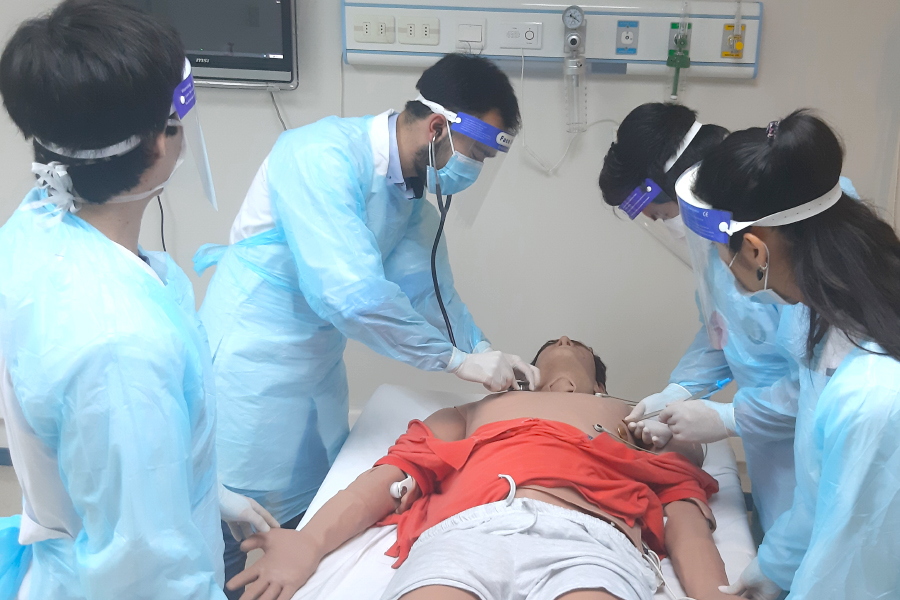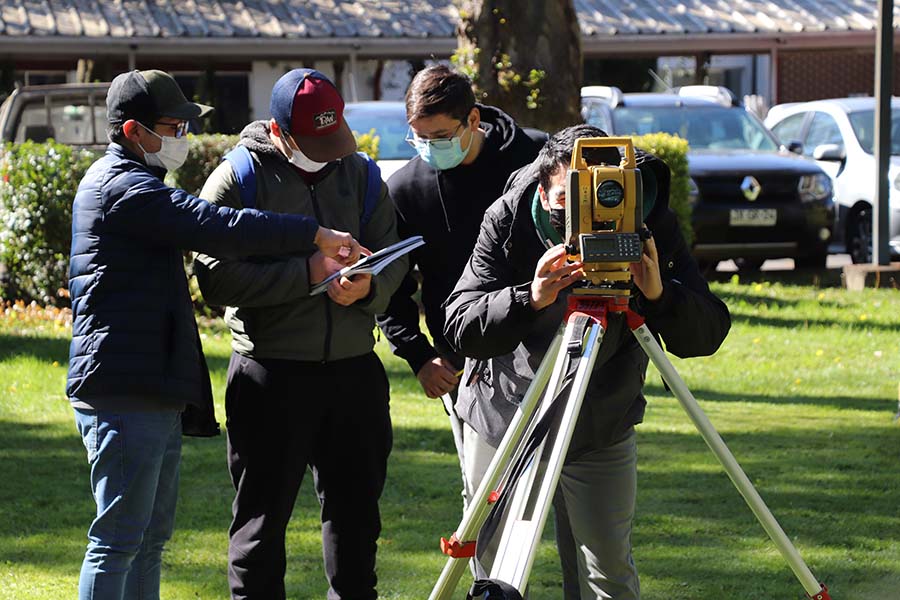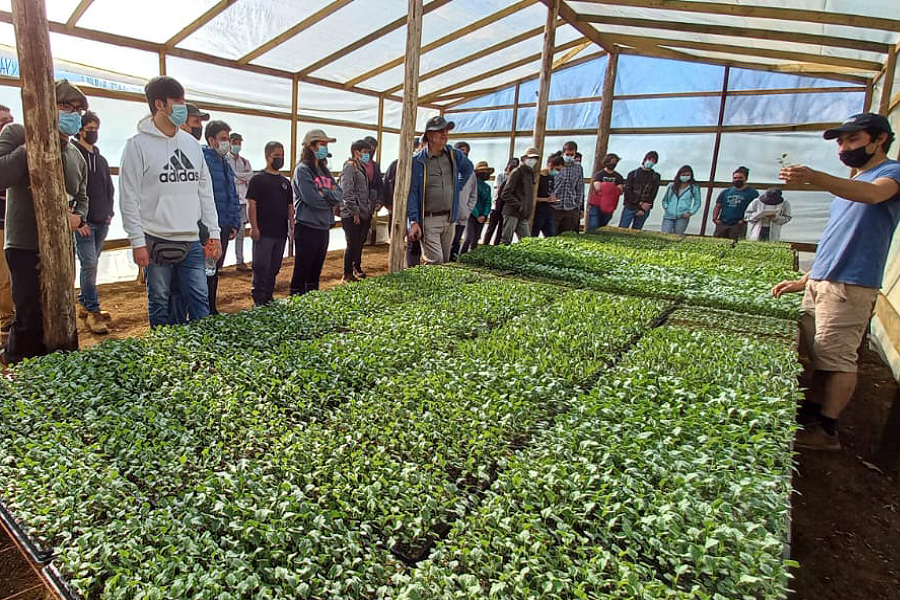|
The teaching process currently takes place with a mix of face-to-face classes, hybrid classes and online classes. |
The return to face-to-face classes in higher education is a topic of national concern. The State Universities are starting with a progressive return to face-to-face classes and in the La Araucanía Region, the Universidad de La Frontera (UFRO) promotes the reunion of the students in-person in the classrooms, laboratories and on the campuses. University life slowly returns, but with the due precautions. For months, classes were carried out online, using digital support tools that now are also the basis of a mix of face-to-face and online classes, a teaching and learning model that the state universities adopted in order to quickly respond to the new health and confinement measures. The Vice-rector for Academic Affairs, Dr. Renato Hunter, commented: “The improvement of the sanitary conditions in our country allows the university to progressively return to our face-to-face activities, and hopefully to welcome all of our students in-person, soon. And also to start again with our student mobility activities and our face-to-face support, which is very important for a lot of the management processes of our university.” UFRO set up a Commission for the progressive return of its undergraduate students, which is directed by the Vice-rectorate for Undergraduate Affairs and five other directors. The preparations for the return to face-to-face activities included a diagnosis of all activities, in order to define the most essential ones to achieve the desired profile of the graduates. “Our purpose was to offer a save return, and the joint work with the faculties, deaneries and the teaching-teams has allowed us to respond positively and according to the health measures,” said the Vice-rector for Undergraduate Affairs, Pamela Ibarra. She emphasized that “there is still a lot of work to do, but we have already delivered the guidelines and proposals to appropriately adapt the teaching and learning environment to the current context, and we provide a variety of support programs for the students and teachers, especially for socio-emotional support”. All of the programs of the Faculty of Medicine and the program in Dentistry already returned to face-to-face classes, addressing practical aspects in the laboratories of the Faculty; and the senior students are carrying out their internships, for example in the Hospital Dr. Hernán Henríquez Aravena in Temuco, in Family Health Centers, among others. Regarding the Faculty of Education, Social Science and Humanities, 60 % of the students already returned to face-to-face classes and the Faculty of Agricultural and Forestry Sciences was one of the first to present a work plan for getting back to in-person classes. Thus, during the first semester the priority activities were defined together with the Student Associations, in order to strengthen the return process and the familiarization with learning and work spaces (classrooms, laboratories, greenhouses, Experimental Campuses, etc.). The activities of the three study programs of this faculty are taking place in a mix of face-to-face classes, hybrid classes, and practical training activities. HYBRID MODELS The director of the Office of Curricular and Teacher Development, Solange Martínez, emphasizes that 122 classrooms / laboratories have already been equipped for hybrid teaching and learning activities. Additionally, the teaching staff of the different faculties has been trained in order to achieve the best hybrid learning and teaching experience possible, with the best resources available for pedagogical support. Questions about the vaccination status, family circumstances, and the familiarization with new professional training systems are some of the factors the young students have to face in this current scenario. However, more than 92 % of the UFRO students already completed the vaccination process at the beginning of the second semester of 2021 – a very positive figure. Over the next weeks, an increasingly positive panorama is expected regarding the return, which seeks to meet the needs of the students, providing the necessary support they need to return to the face-to-face activities in the most appropriate way, after a long time of curfews during the pandemic. Written by: Communications Office, UFRO |







